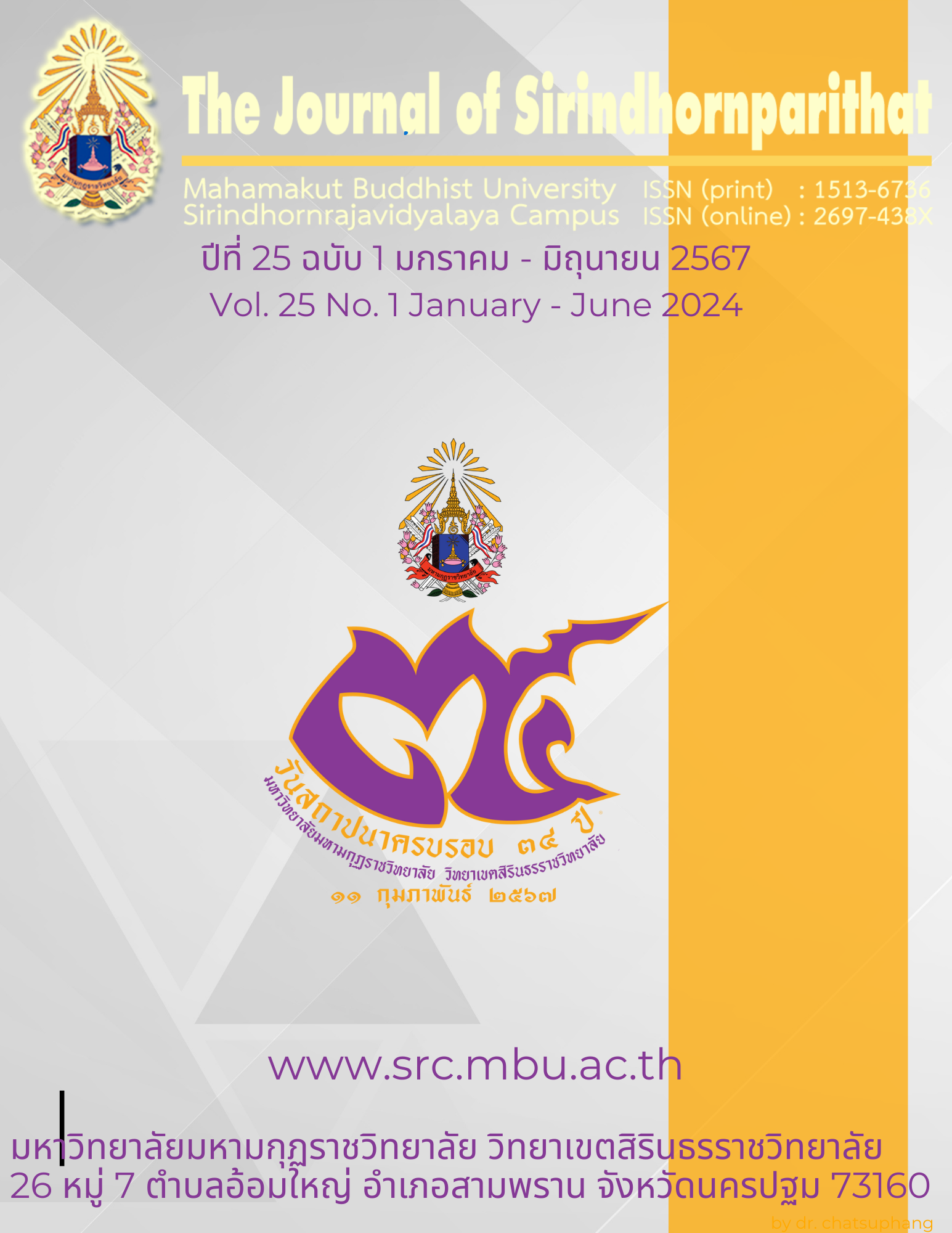A study of learning behaviors of the undergraduate students from Faculty of Education
Keywords:
behavior, learning, educationAbstract
This research study was aimed to 1) investigate the learning behaviors of the third-year undergraduate students and 2) analyze the learning behaviors of the third-year undergraduate students. The target group included 23 third-year students majoring in Biology. The study tool was the survey of students’ learning behaviors. The data were analyzed by frequency distributions, percentage, and independent t-test.
The result of the study revealed that the overall learning behaviors were in the Good level. The first three good behaviors performed by the students were knowledge utilization over taking examination, the self-evaluation of determination to graduate, and adaptation of knowledge. Apart form taking examination, what the students least performed was to research the curriculum details to clearly understand. The survey of learning behaviors manifested that 16.30 percentage of the students did not perform the overall desired behaviors. Those who performed the overall desired behaviors 1-8 times were found 56.52 percentage. Finally, 27.1 percentage showed that the students performed the overall desired behaviors for more than 9 times. According to the comparative analysis of the students’ learning behaviors whose learning outcomes were different, the students with high learning achievements performed differently from those with lower achievements in the parts of knowledge utilization over taking examination, interests in studying further from the class, additional knowledge gained from self-study assignments, and willingness and participation in the class.
References
สโรชา หะรังศรี. (2553). การใช้การวิจัยแบบผสมเพื่ออธิบายความสัมพันธ์เชิงสาเหตุระหว่างความเชื่อมั่นและพฤติกรรมการสอนของครูที่มีต่อพฤติกรรมการเรียนของนักเรียน. วิทยานิพนธ์ปริญญามหาบัณฑิต ภาควิชาวิจัยการศึกษา. คณะครุศาสตร์: จุฬาลงกรณ์มหาวิทยาลัย.
อติกันต์ ภูดีทิพย์. (2552). การศึกษาผลสัมฤทธิ์ทางการเรียนวิทยาศาสตร์ และคุณธรรม จริยธรรมพื้นฐาน 8 ประการของนักเรียนชั้นมัธยมศึกษาปีที่ 3 ที่ได้รับการจัดการเรียนรู้แบบกลุ่มเพื่อนช่วยเพื่อน. สารนิพนธ์ปริญญามาบัณฑิต. สาขาวิชาวิจัยการศึกษา. คณะครุศาสตร์: จุฬาลงกรณ์มหาวิทยาลัย.
Bower, & Robert, A. (1989). Psychology: The Essential Science. Boston: Allyn and Bacon, 15-18.
Cronbach, L. J. (1963). Educational Psychology. New York: Harcourt Brace.
Lorenzen, M. (2001). Active Learning and Library Instruction. Illinois Libraries, 83(2), 19-24.
Williams, M. K. (2017). John Dewey in the 21st century. Journal of Inquiry and Action in Education, 9(1), 7.
Yen, C. J., Konold, T. R., & McDermott, P. A. (2004). Does learning behavior augment cognitive ability as an indicator of academic achievement?. Journal of School Psychology, 42(2), 157-169.

Downloads
Published
Issue
Section
License
Copyright (c) 2024 Mahamakut Buddhist University

This work is licensed under a Creative Commons Attribution-NonCommercial-NoDerivatives 4.0 International License.
บทความที่ได้รับการตีพิมพ์เป็นลิขสิทธิ์ของ มหาวิทยาลัยมหามกุฏราชวิทยาลัย วิทยาเขตสิรินธรราชวิทยาลัย
ข้อความที่ปรากฏในบทความแต่ละเรื่องในวารสารวิชาการเล่มนี้เป็นความคิดเห็นส่วนตัวของผู้เขียนแต่ละท่านไม่เกี่ยวข้องกับหาวิทยาลัยมหามกุฏราชวิทยาลัย วิทยาเขตสิรินธรราชวิทยาลัย และคณาจารย์ท่านอื่นๆในมหาวิทยาลัยฯ แต่อย่างใด ความรับผิดชอบองค์ประกอบทั้งหมดของบทความแต่ละเรื่องเป็นของผู้เขียนแต่ละท่าน หากมีความผิดพลาดใดๆ ผู้เขียนแต่ละท่านจะรับผิดชอบบทความของตนเองแต่ผู้เดียว



